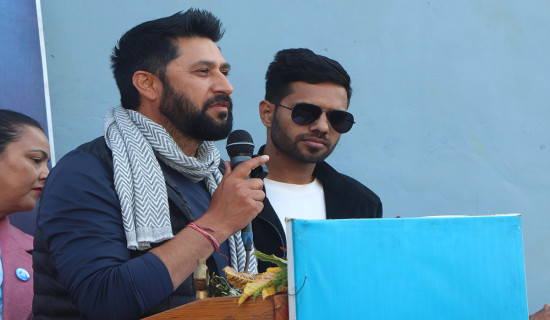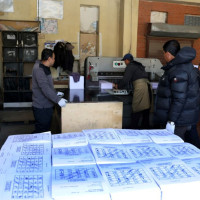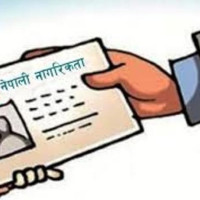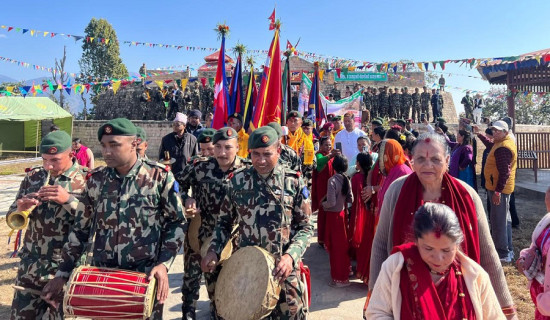- Thursday, 8 January 2026
Ruling, opposition parties not on same page on statute amendment
By Pallav Bhusal,Kathmandu, Jan. 5: The ongoing deliberations surrounding the amendment of Nepal's constitution have sparked significant political and public interest, marking a pivotal moment in the country’s democratic evolution. The ruling coalition and opposition parties are engaged in discussions to determine the scope and direction of these amendments. While some see these efforts as a progressive step towards addressing systemic shortcomings, others remain sceptical about their intent and implications.
The major political parties, including the ruling Nepali Congress, CPN-UML, and Maoist Centre, have expressed varying opinions on the necessity, scope, and potential impact of amending the constitution. While there is a shared recognition of the need to address constitutional weaknesses, the approaches and priorities differ significantly among these parties.
The CPN-UML has emerged as a vocal advocate for preserving the core principles of the 2015 constitution while addressing its weaknesses. The party believes that a cautious and inclusive approach is essential to ensure the amendments strengthen, rather than undermine, the constitution.
Mahesh Bartaula, Chief-Whip of the CPN-UML, emphasized the party's commitment to constitutional reform as a key motivation behind its coalition with the Nepali Congress. "The two parties are working within themselves internally to discuss and bring out the final draft of the amendments needed in the constitution," he said.
Bartaula outlined several strategies under consideration, including forming an advisory committee, fostering discussions among all political parties, and consulting with constitutional experts. He underscored the importance of an inclusive process, stating, "Not only CPN-UML and Nepali Congress, all other parties must agree and be involved during the constitutional amendment in national understanding and national task. So, we should not hurry; we should instead try to bring all the political parties on board."
Addressing public concerns, Bartaula reassured that core achievements such as federalism, secularism, democracy, and social justice would remain intact. "There are five major factors including democracy, secularism, proportional electoral system, social justice, and federalism that are the backbone of the current constitution. We will move forward in amending the constitution without breaking these backbones," he added.
The Nepali Congress has taken a measured approach to constitutional amendments, emphasizing the importance of upholding democratic values and addressing proportional representation. Known for its centrist stance, the party advocates for gradual improvements to address systemic shortcomings while maintaining the constitution’s inclusive nature.
Shyam Kumar Ghimire, Chief-Whip of the Nepali Congress, echoed this cautious perspective. "There are some things that need to be amended, and the constitution will be amended when necessary," he said.
Ghimire highlighted democracy and human rights as key priorities for any amendments. "Even if the core components of the constitution cannot be amended, other aspects will be improved," he said. To this end, the party has established a working committee to study areas requiring change. "This committee will provide recommendations to the government, which will then engage all parties in further discussions," he added.
The emphasis on consensus was clear, with Ghimire stating, "Issues where there is an understanding and agreement between all parties will be implemented during the constitutional amendment."
The Maoist Centre has approached the amendment discussions with a mix of cautious optimism and scepticism. The party supports the idea of constitutional reform but stresses that any amendments must align with the spirit and principles of the existing constitution.
Rupa Chaudhary, Whip of the Maoist Centre, expressed concerns about the motivations behind the coalition between the CPN-UML and Nepali Congress, labelling it an unnatural alliance.
"The constitutional amendment is necessary for progress, change, and further development and expansion of the rights of the people," she said, adding that the party would support amendments only if they benefit the nation and its people.
Chaudhary firmly rejected any amendments that could undermine federalism or secularism, stating, "That will never be accepted. The amendment is made to make the constitution better without compromising its core principles. If it goes against the core values of the constitution and the aspirations of the people, then we won’t support it."
The ongoing talks on constitutional amendments take place against a backdrop of both national and international challenges. Analysts suggest that the proposed amendments aim to address structural weaknesses and ensure more effective governance under Nepal’s federal framework. However, achieving political consensus and public buy-in remains a critical challenge.
The 2015 constitution, which marked Nepal’s transition to a federal democratic system, has faced implementation hurdles. Disputes over federal boundaries, proportional representation, and the balance of power between federal and provincial governments have been contentious issues. The proposed amendments are viewed as an opportunity to address these challenges while preserving the constitution’s core values.
Critics, however, warn that the lack of transparency and inclusivity in these discussions could lead to further polarization. Civil society groups have called for more public engagement in the amendment process to ensure that the outcomes reflect the aspirations of all Nepalese citizens.
The ongoing discussions on constitutional amendments are not just about legal reforms but also a test of Nepal’s democratic maturity. The ability of political leaders to prioritize national interests over party politics will be crucial in determining the success of these efforts.
Leaders like Mahesh Bartaula, Shyam Kumar Ghimire, and Rupa Chaudhary have underscored the need for a principled and inclusive approach to amendments. Their statements reflect the complexities of balancing political priorities with the aspirations of the people.
As the talks progress, the government’s ability to foster consensus among all stakeholders will be a decisive factor. Ensuring that amendments strengthen, rather than dilute, the core values of democracy, federalism, and social justice will be key to sustaining Nepal’s democratic progress.
The deliberations over constitutional amendments have brought Nepal's political leaders to a crossroads. The choices they make will not only shape the country’s legal framework but also its political landscape for years to come. While challenges remain, the process offers an opportunity for Nepal to reaffirm its commitment to democratic principles and inclusive governance.



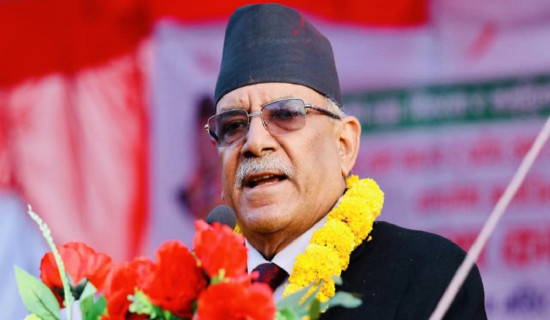
-square-thumb.jpg)

